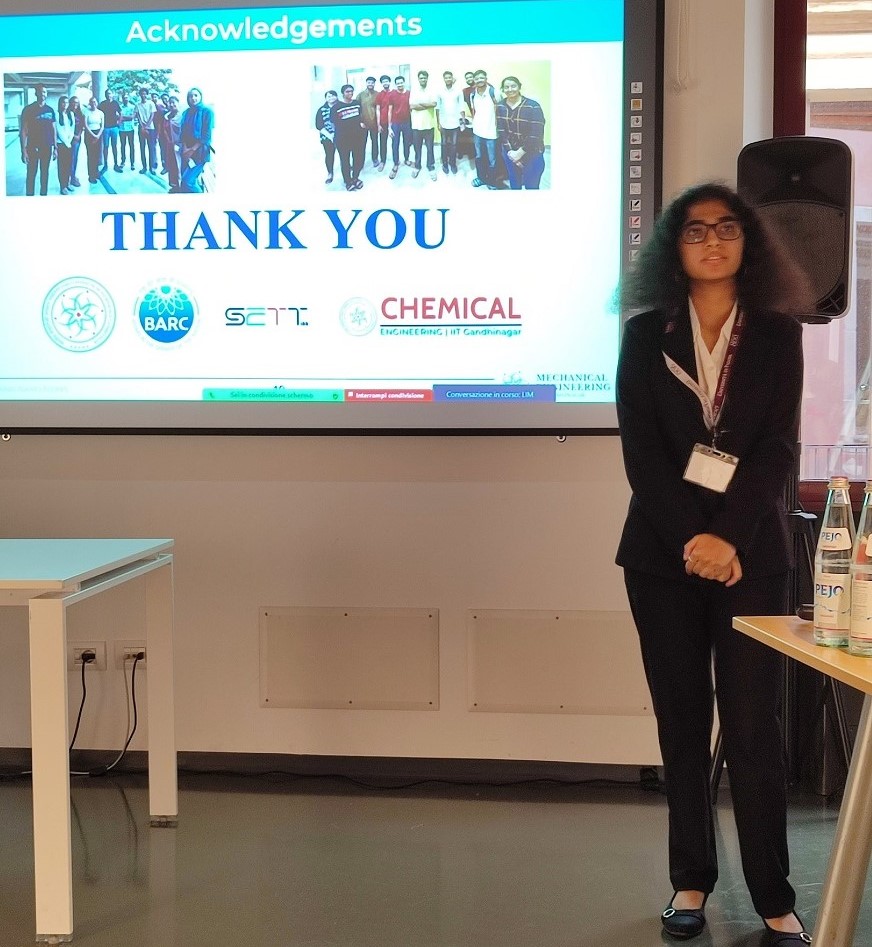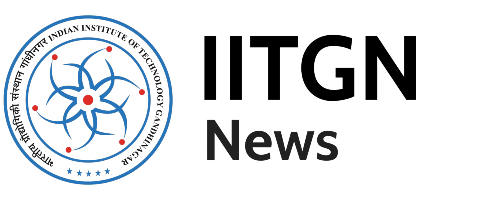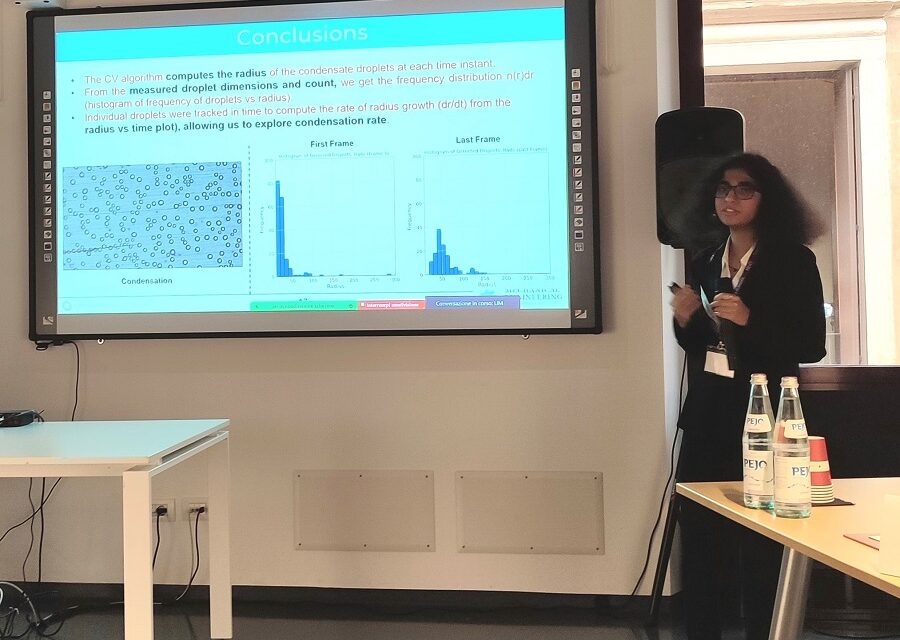STORY CREDITS
Writer: Eesha Kulkarni
Editors: Prof Soumyadip Sett, Manasasri Muralidharan
Photo: Eesha Kulkarni
I was excited and nervous when I stepped up to deliver my presentation at the 8th International Conference on Micro Nano Flows (MNF 2023). These feelings compounded when they introduced me as Dr. Kulkarni, assuming I would be a practicing researcher. It was at that moment I realized how rare it was for an undergraduate student to get the opportunity to present their work on such a platform!
It was an immense honor to be given the opportunity to share our research on Computer Vision-Enabled Dropwise Condensation Heat Transfer Measurement at MNF 2023. MNF 2023, held in Padova, Italy, from 18th – 20th September 2023, has a special place in my heart. It was an unforgettable experience, as it was my first international conference as an undergraduate student.
During my talk, I briefed the audience about the recent advancements in micro and nanoscale fabrication techniques and innovative surfaces that are rapidly emerging. During vapor condensation on such surfaces, the performance is typically quantified by experimental means. However, in industrial applications, we often find condensing surfaces, such as heat exchangers with complex geometries and unknown surface coatings.
Through our research, we aimed to determine and eventually predict the condensation performance on a given surface. I discussed how we leveraged the strengths of computer vision and machine learning to detect and track condensed droplets. We successfully tracked the condensed droplet’s movement and growth rate over time, allowing us to train a deep-learning network that could accurately predict the condensation performance on any given surface.

It took me about 15 minutes to relay all of this information to the distinguished audience, but it seemed like a lifetime. Once my presentation was completed, I was asked questions from the audience. It was immensely heartening to see one query raised by Professor Srinivas Garimella from Georgia Institute of Technology, USA, whose profile I had admired since I began looking for internships abroad. Knowing that my research piqued people’s interests was truly gratifying.
In addition to my presentation, MNF 2023 allowed me to attend keynote sessions from noted researchers, learn about cutting-edge methodologies and niche research domains, and faculty members of diverse research fields and interact with them. I struck up a conversation with Professor Matteo Bucci from the Department of Nuclear Science and Engineering, Massachusetts Institute of Technology, which provided plenty of food for thought.
The diverse conference sessions helped me update my knowledge of cutting-edge methodologies from across the globe, delve into the intricacies of niche research domains, and understand essential breakthrough concepts. Additionally, the numerous networking opportunities were one of the highlights of the conference. I met researchers and experts from different parts of the world, discussed novel ideas, and was able to lay the foundation for potential future collaborations. In one such conversation, Professor Yutaku Kita of King’s College, London, offered to help me with his Institute’s grant/fund-securing process if I happened to pursue a PhD there.
Overall, I believe this conference experience was enriching and inspiring. It motivated me to return to my work with full force and conduct further research. I am immensely grateful to Prof Soumyadip Sett and Prof Shanmuganathan Raman, whose thorough guidance made this experience a reality. Additionally, I am thankful for the generous financial support provided by the Chemical Engineering Department and the Institute. Like all other firsts, this international conference has undoubtedly been a memorable experience and will stay with me forever.

